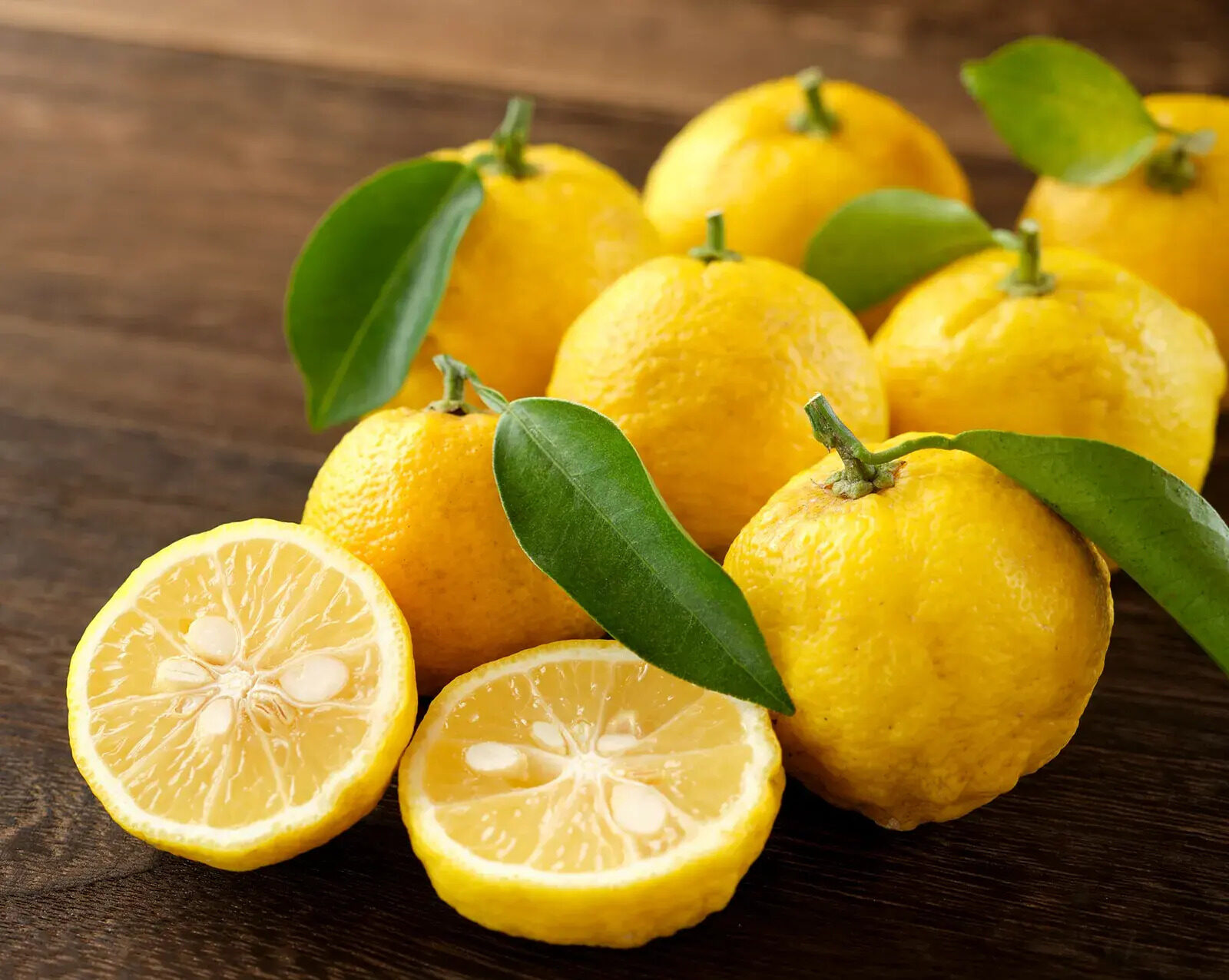
Yuzu is a unique citrus fruit that has captured the hearts and taste buds of many around the world. Originating from East Asia, this small, yellow fruit packs a punch with its tart, aromatic flavor. But what makes yuzu so special? Yuzu is not just another citrus; it boasts a rich history, diverse uses, and numerous health benefits. From culinary delights to skincare products, yuzu's versatility is unmatched. Whether you're a foodie, a health enthusiast, or just curious, learning about yuzu can be both fun and enlightening. Ready to dive into the world of yuzu? Let's explore 30 fascinating facts about this extraordinary fruit!
What is Yuzu?
Yuzu is a citrus fruit originating from East Asia. It looks like a small grapefruit with a bumpy rind. Known for its unique flavor, yuzu is a staple in Japanese, Korean, and Chinese cuisines.
- Yuzu is believed to have originated in China over 1,000 years ago before spreading to Japan and Korea.
- The fruit is a hybrid of sour mandarin and Ichang papeda, a wild citrus from China.
- Yuzu trees can withstand cold temperatures, surviving even at -9 degrees Celsius (15 degrees Fahrenheit).
- The fruit is typically harvested in late autumn to early winter, making it a seasonal delicacy.
- Yuzu has a tart, tangy flavor, often described as a mix between grapefruit and mandarin orange.
Culinary Uses of Yuzu
Yuzu's unique taste makes it a popular ingredient in various dishes and beverages. Its versatility is celebrated in many culinary traditions.
- Yuzu juice is commonly used to make ponzu sauce, a tangy condiment for sushi and sashimi.
- The zest is often grated and used as a garnish for soups, noodles, and salads.
- Yuzu kosho, a spicy paste made from yuzu zest, chili peppers, and salt, is a popular seasoning in Japanese cuisine.
- In Korea, yuzu is used to make yuja-cha, a sweet, marmalade-like tea.
- Yuzu is also a key ingredient in many desserts, including cakes, ice creams, and sorbets.
Health Benefits of Yuzu
Beyond its culinary uses, yuzu is packed with nutrients and offers several health benefits.
- Yuzu is rich in vitamin C, which helps boost the immune system.
- The fruit contains antioxidants that can help reduce inflammation and fight free radicals.
- Yuzu has been used in traditional medicine to improve digestion and alleviate colds.
- The essential oils extracted from yuzu peel are believed to have calming and stress-relieving properties.
- Yuzu is low in calories, making it a healthy addition to any diet.
Yuzu in Beauty and Skincare
Yuzu's benefits extend beyond the kitchen. Its properties make it a popular ingredient in beauty and skincare products.
- Yuzu extract is often used in skincare products for its brightening and anti-aging effects.
- The fruit's high vitamin C content helps promote collagen production, improving skin elasticity.
- Yuzu essential oil is used in aromatherapy for its refreshing and uplifting scent.
- Yuzu-infused bath salts and oils are popular in Japan for their relaxing and skin-soothing properties.
- The fruit's natural acids can help exfoliate and rejuvenate the skin.
Cultural Significance of Yuzu
Yuzu holds a special place in East Asian culture, symbolizing health and prosperity.
- In Japan, yuzu is traditionally used in hot baths during the winter solstice, a practice known as yuzu-yu, to ward off colds and bring good fortune.
- Yuzu is often given as a gift during the New Year to symbolize good luck and longevity.
- The fruit is featured in various festivals and celebrations, particularly in Japan and Korea.
- Yuzu trees are sometimes planted in gardens and temples as a symbol of resilience and endurance.
- In Chinese culture, yuzu is associated with happiness and is often used in traditional medicine.
Fun Facts About Yuzu
Yuzu's unique characteristics and history make it a fascinating fruit with many interesting tidbits.
- Unlike other citrus fruits, yuzu has a thick, bumpy rind and numerous seeds, making it less suitable for eating raw.
- The fruit's aroma is so distinctive that it is often used in perfumes and scented candles.
- Yuzu is sometimes called "Japanese citron" due to its popularity in Japan.
- The fruit's name, "yuzu," is derived from the Chinese word "yòuzi," which means "pomelo."
- Despite its popularity in East Asia, yuzu is still relatively unknown in many parts of the world, making it a unique and exotic ingredient for those who discover it.
Yuzu: A Citrus Marvel
Yuzu isn't just another citrus fruit. Its unique flavor and aroma make it a standout in both culinary and cosmetic worlds. From Japanese cuisine to skincare products, yuzu's versatility is impressive. It's packed with vitamin C, antioxidants, and anti-inflammatory properties, making it a health booster. Despite its knobby appearance, yuzu's zesty and floral notes can transform dishes and drinks into gourmet experiences. Plus, its essential oils are used in aromatherapy to reduce stress and uplift moods. Whether you're a foodie, a health enthusiast, or someone who loves natural beauty products, yuzu offers something special. So next time you see this exotic fruit, give it a try. You might just find a new favorite ingredient or wellness secret. Yuzu truly is a citrus marvel worth exploring.
Was this page helpful?
Our commitment to delivering trustworthy and engaging content is at the heart of what we do. Each fact on our site is contributed by real users like you, bringing a wealth of diverse insights and information. To ensure the highest standards of accuracy and reliability, our dedicated editors meticulously review each submission. This process guarantees that the facts we share are not only fascinating but also credible. Trust in our commitment to quality and authenticity as you explore and learn with us.
